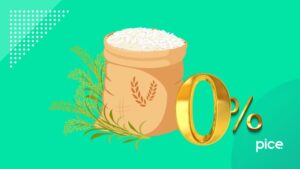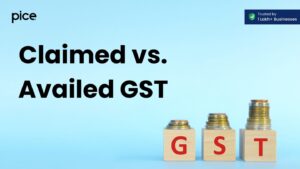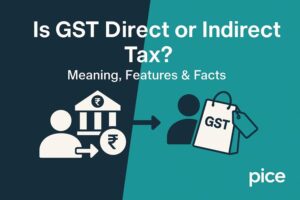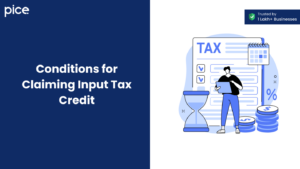Overview of Impact of GST on Tea Industry
- 11 Feb 25
- 11 mins
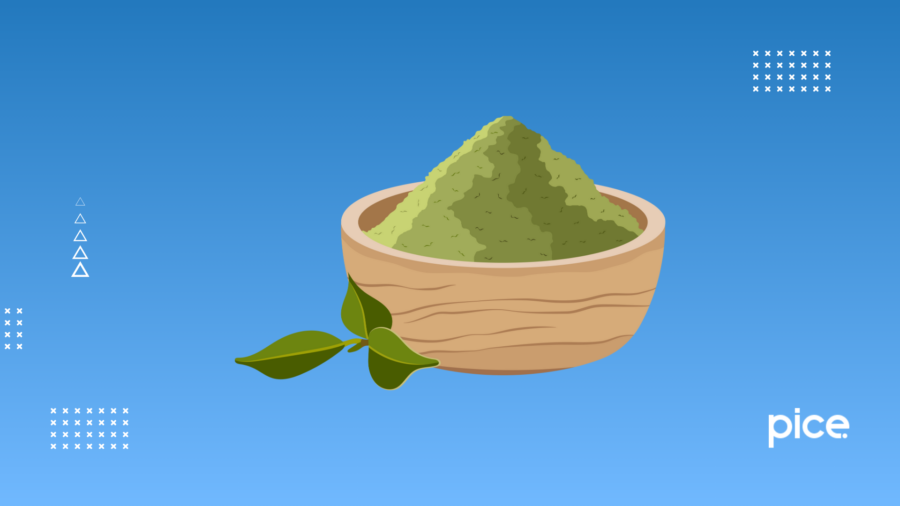
Overview of Impact of GST on Tea Industry
- Background of the Tea Industry in India
- Classification of Tea Under HSN Codes and GST Rates Applicable
- Compliance and Documentation for Tea
- Taxability of Tea Under GST
- Exemptions Under GST
- Levy of TCS on the Auction of Tea
- How to Find the Right HSN Code for Your Product?
- Challenges in Tea Classification
- Conclusion
Key Takeaways
- GST Simplification: GST replaced multiple indirect taxes, streamlining tax collection for the tea industry.
- Tax Rates & HSN Codes: Tea falls under HSN code 902 with a 5% GST rate.
- Exemptions: Raw tea leaves are tax-exempt, but processed tea is taxable.
- Input Tax Credit (ITC): Manufacturers can claim ITC, but cultivators selling raw tea leaves cannot.
- Challenges: Misclassification and compliance issues require businesses to stay updated.
The introduction of the Goods and Services Tax (GST) in India has led to significant improvement in the complex tax collection system of our country. This indirect tax, replacing several other indirect taxes, is applicable to the cost of various goods and services.
GST also maintains a multifaceted impact on the Indian tea industry, a flourishing one at that! Tea producers, retailers, and exporters of tea alike have all felt the result of GST being enforced.
With this blog, you shall be caught up with all the updated information related to GST rates on tea prices and other associated details. Thus, you will have a clear grasp of the impact of GST on tea industry.
Background of the Tea Industry in India
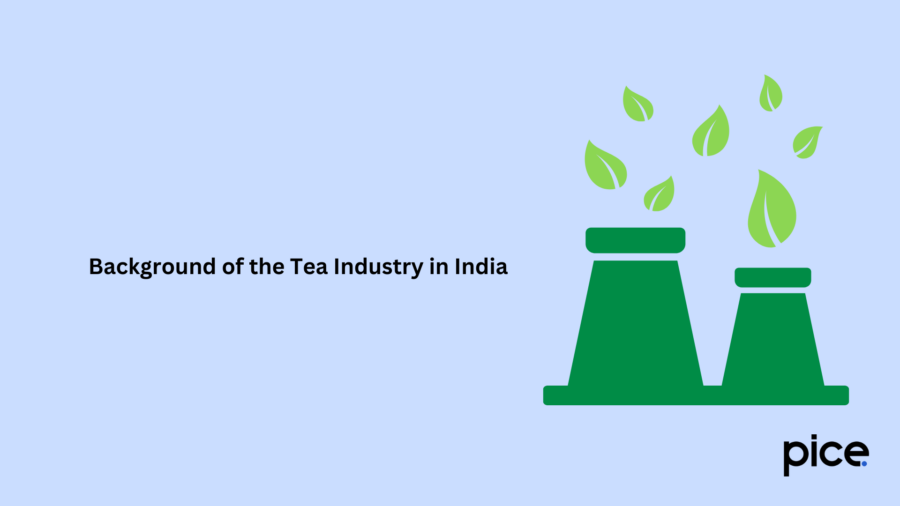
India is currently one of the largest tea producers in the world, second only to China. With tea drinkers and lovers settled down in different parts of the country, 82% of the produce is consumed by motherlanders while an average of 18% of the total tea production is exported. Before the tea was sold to consumers, it was sent over to auction centres.
Tea is produced across 15 states of our country, including Assam, Tamil Nadu, West Bengal, and Kerala. These states are the recognized, major producers, accounting for up to 97% of the nation’s total tea production.
Further, the tea industry in India is one of the biggest employers, providing a source of living to several workers and boosting economic viability. Rightfully, this sector is considered to be a vital part of India’s agrarian economy.
Classification of Tea Under HSN Codes and GST Rates Applicable
Initially, there was a call for a certain special rate for tea. Tea can be classified under HSN Codes, as specified in the table below. The HSN codes for types of tea and the current tax rates applicable are mentioned:
| HSN Code | Types of Tea | Rate in Percentage (%) | CESS in Percentage (%) | Effective Date | Revised Rates |
| 902 | Tea, May or May Not be Flavoured | 5 | 0 | 01/07/2017 | 5% |
| 902 | Tea, May or May Not be Flavoured | 0 | - | 01/07/2017 | 0 |
| 9021010 | Tea, May or May Not be Flavoured; Green Tea (that is Not Fermented); In Immediate Packings Of A Content Not Exceeding 3 Kg: Content Not Exceeding 25 G | 5 | 0 | 01/07/2017 | 5% |
| 9021020 | Tea, May Or May Not be Flavoured; Green Tea (that is Not Fermented); In Immediate Packings Of A Content Not Exceeding 3 Kg: Content Exceeding 25 G. But Not Exceeding 1 Kg | 5 | 0 | 01/07/2017 | |
| 9021030 | Tea, May Or May Not Be Flavoured Green Tea (Not Fermented) In Immediate Packings Of Content Not Exceeding 3 Kg: Content Exceeding 1 Kg. But Not Exceeding 3 Kg. | 5 | 0 | 01/07/2017 | 5% |
| 9021090 | Tea, May Or May Not Be Flavoured Green Tea (Not Fermented) In Immediate Packings Of A Content Not Exceeding 3 Kg: Other | 5 | 0 | 01/07/2017 | 5% |
| 9022010 | Tea, May Or May Not Be Flavoured Other Green Tea (Not Fermented): Green Tea In Packets With Contents Exceeding 3 Kg But Not Exceeding 20 Kg | 5 | 0 | 01/07/2017 | 5% |
| 9022020 | Tea, May Or May Not Be Flavoured Other Green Tea (Not Fermented): Green Tea In Bulk | 5 | 0 | 01/07/2017 | 5% |
| 9022030 | Tea, May Or May Not Be Flavoured Other Green Tea (Not Fermented): Green Tea Agglomerated In Forms Such As Balls, Bricks And Tablets | 5 | 0 | 01/07/2017 | 5% |
| 9022040 | Tea, May Or May Not Be Flavoured Other Green Tea (Not Fermented): Green Tea Waste | 5 | 0 | 01/07/2017 | 5% |
| 9022090 | Tea, May Or May Not Be Flavoured Other Green Tea (Not Fermented): Other | 5 | 0 | 01/07/2017 | 5% |
| 9023010 | Tea, May Or May Not Be Flavoured Black Tea (Fermented) And Partly Fermented Tea, In Immediate Packings Of A Content Not Exceeding 3 Kg. : Content Not Exceeding 25 G. | 5 | 0 | 01/07/2017 | 5% |
| 9023020 | Tea, May Or May Not Be Flavoured Black Tea (Fermented) And Partly Fermented Tea, In Immediate Packings Of A Content Not Exceeding 3 Kg. : Content Exceeding 25 G. But Not Exceeding 1 Kg. | 5 | 0 | 01/07/2017 | 5% |
| 9023030 | Tea, May Or May Not Be Flavoured Black Tea (Fermented) And Partly Fermented Tea, In Immediate Packings Of A Content Not Exceeding 3 Kg. : Content Exceeding 1 Kg. But Not Exceeding 3 Kg. | 5 | 0 | 01/07/2017 | 5% |
| 9023090 | Tea, May Or May Not Be Flavoured Black Tea (Fermented) And Partly Fermented Tea, In Immediate Packings Of A Content Not Exceeding 3 Kg. : Other | 5 | 0 | 01/07/2017 | 5% |
| 9024010 | Tea, May Or May Not Be Flavoured Other Black Tea (Fermented) And Other Partly Fermented Tea: Content Exceeding 3 Kg. But Not Exceeding 20 Kg. | 5 | 0 | 01/07/2017 | 5% |
| 9024020 | Tea, May Or May Not Be Flavoured Other Black Tea (Fermented) And Other Partly Fermented Tea: Black Tea, Leaf In Bulk | 5 | 0 | 01/07/2017 | 5% |
| 9024030 | Tea, May Or May Not Be Flavoured Other Black Tea (Fermented) And Other Partly Fermented Tea: Black Tea, Dust In Bulk | 5 | 0 | 01/07/2017 | 5% |
| 9024040 | Tea, May Or May Not Be Flavoured Other Black Tea (Fermented) And Other Partly Fermented Tea: Tea Bags | 5 | 0 | 01/07/2017 | 5% |
| 9024050 | Tea, May Or May Not Be Flavoured Other Black Tea (Fermented) And Other Partly Fermented Tea: Black Tea, Agglomerated In Forms Such As Ball, Brick And Tablets | 5 | 0 | 01/07/2017 | 5% |
| 9024060 | Tea, May Or May Not Be Flavoured Other Black Tea (Fermented) And Other Partly Fermented Tea: Black Tea, Waste | 5 | 0 | 01/07/2017 | 5% |
| 9024090 | Tea, May Or May Not Be Flavoured Other Black Tea (Fermented) And Other Partly Fermented Tea: Other | 5 | 0 | 01/07/2017 | 5% |
Compliance and Documentation for Tea
If you are in the tea business, here are essential compliance and documentation guidelines to help you operate smoothly:
Requirements for Invoicing Purposes: Invoices for tea-based products must mention specific details to ensure accurate invoicing and GST compliance. Details shall include the GST rate applicable, the HSN code, and the total applicable tax amount. This shall help in tax reporting and avoidance of legal issues.
Input Tax Credit (ITC) Requirements: Enterprises may claim an Input Tax Credit (ITC) on certain tea purchases, which will let them offset the tax paid on inputs against tax liability on sales made. Accuracy with documentation and careful filing are essential, however, for managing ITC and getting various tax benefits.
For GST Registration: Enterprises that are involved in the sale/distribution of tea are required to register under GST. Their registration is important for collecting tax from customers as well as for claiming input tax credits. Compliance with GST registration regulations is a must. It ensures smooth business operations alongside adherence to tax laws.
Taxability of Tea Under GST
Tea in the form of tea leaves or green leaves are considered ‘agricultural produce’ and therefore, are exempted under GST. Tea cultivators, at the same time, are excused from registration under GST if their supply is limited to tea cultivated within their tea plantations or agricultural fields.
“Manufactured tea” on the other hand, is not eligible for exemption under GST as is the sale of tea leaves. It may be available for packing, loading, unloading, storing, or warehousing of agricultural produce. Note that manufactured tea will not be deemed eligible for other exemptions specified under S.No. 54 of Notification No. 12/2017-Central tax (Rate).
Exemptions Under GST
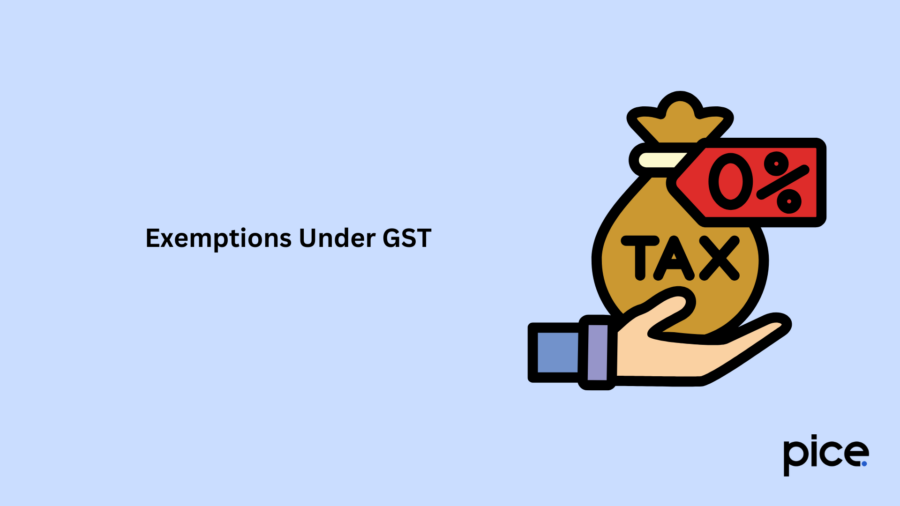
The following exemptions are extended under law vide NT. 12/2017- CT(R) is only applicable when services in association with tea as agricultural produce are concerned:
1. Support services connected to cultivation include:
● Agricultural operations and tea estates associated with production (harvesting, cultivation, threshing, testing or plant protection)
● Farm labour supply
● Procedures at the agricultural farm (like pruning, tending, harvesting, cutting, drying, trimming, cleaning, sun drying, sorting, cooling, fumigating, curing, grading, or bulk packaging
● Leasing or renting of agricultural machinery/ vacant land which may be with or without a structure
● Packing, storing, loading, unloading, or warehousing agricultural extension services
● Services extended by any Agricultural Produce Marketing Committee/Board
● Services extended by the commission agent fumigation from a warehouse
2. Rail or Vessel based transportation within India
3. Road transportation by the GTA (Goods Transport Agency)
4. Crop Insurance/General Insurance
5. Job-related services
Notable Judgements in GST So Far
Some notable judgements in GST so far, include:
● Packaging of Tea Bags—The act where tea is stuffed into little pouches or tea bags; with the raw materials including tea and necessary packing materials being supplied by the principal - is a taxable supply under GST in India.
● Job work—The act of eliminating caffeine from the tea powder that has been imported through a foreign association and re-exported, is legally taxable under GST. It is considered to be an intra-state supply because the place of supply is the location where the service was originally performed.
Levy of TCS on the Auction of Tea
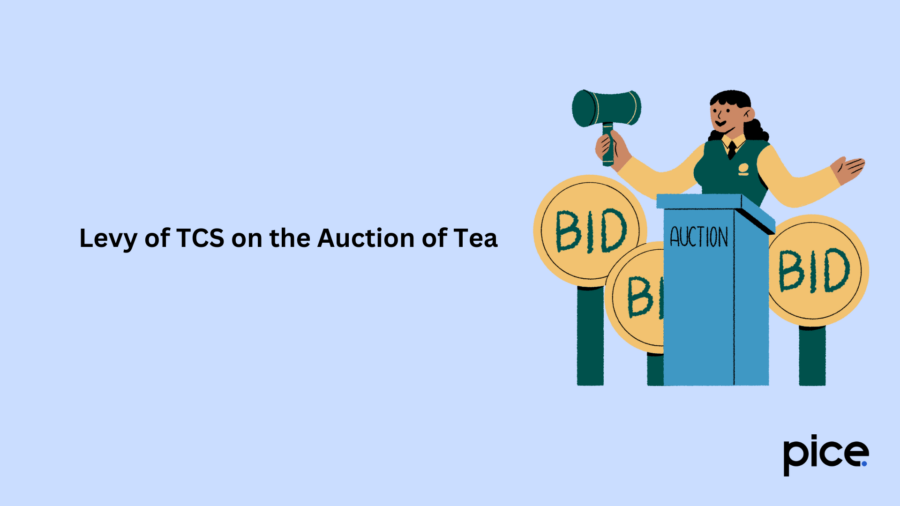
Tea Board of India shall collect TCS at a 1% rate from:
● Tea sellers (and tea producers) on the basis of the net value of the supply of goods (tea in this case)
● Auctioneers of tea on the basis of the net value of supply of services (brokerage in this case)
Taxability for Tea Brokers
Tea brokers facilitate the sales process, serving as the middleman between sellers and buyers. Further, they earn a commission and extend various other business auxiliary services. These services, even if brokers claim to be mere commission agents, are taxable under GST in India.
Impact on Input Tax Credit
Tea cultivators who sell tea leaves as agricultural produce are not eligible for claiming Input Tax Credit (ITC) on various expenses including those of fertilisers. However, tea growers with manufacturing/processing facilities are allowed to claim ITC. Tea producers who give away free trade samples must reverse applicable input tax credits/ charge GST on the supplies. They are also required to maintain proper records of the same.
How to Find the Right HSN Code for Your Product?
Tea is categorised under a certain HSN code, i.e. 902. The first two digits of the respective code 9 indicate the chapter which is “Tea, coffee, mate and spices”. Tea is classified here. The six digits in total represent a specific product.
You can log in to the GST Portal with your correct credentials, and follow these simple steps:
● Navigate to the 'Services' option.
● Go to 'User Services'.
● Click on the 'Search HSN Code' option.
Challenges in Tea Classification
Here are some common challenges faced during tea classification:
● Due to the large variety and different processing methods, distinguishing between types of tea becomes difficult.
● Incorrect assignment of HSN codes may result, leading to significant consequences. Consequences include unjustified penalties and even disputes with the tax authorities.
Conclusion
The tea industry is a major contributor to the Indian economy. Since the implementation of GST, the impact of GST on the tea industry has become an interesting topic. GST has streamlined the tax collection process and reduced complexities. Tea exporters and producers are now actively navigating the nuances of GST compliance, input tax credits, and exemptions to stay on top of their sales and compliance game.
💡If you want to streamline your payment and make GST payments via credit card, consider using the PICE App. Explore the PICE App today and take your business to new heights.
 By
By 





